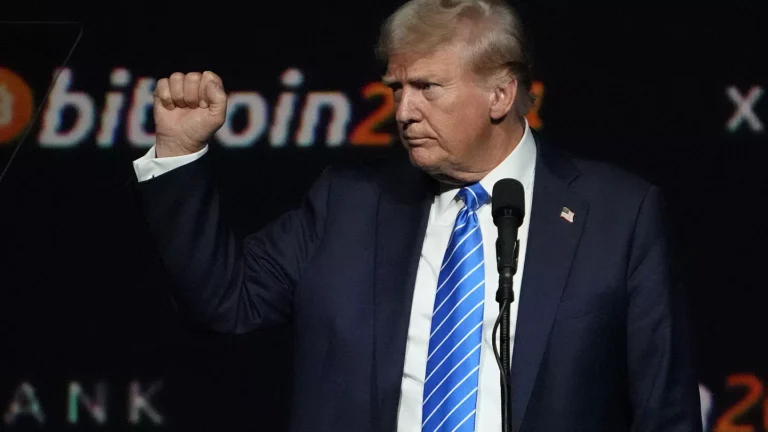The Hook
Imagine a world where the government embraces crypto, creating rules that help rather than hurt. Well, with the Republican Party now dominating the U.S. government, advocates of crypto see a massive opportunity to shape the future of digital assets. But will they succeed? Let’s break it down.
The Big Picture
The Republican Party now controls the Senate, the House of Representatives, and the Presidency in the United States. Why does this matter? Because the crypto community is calling this “the most pro-crypto Congress in history.” And they’re ready to push for regulations that will finally give clarity and structure to the crypto world.
But wait—what exactly are they planning to do? Here’s the game plan:
The Game Plan: Steps for Crypto Legislation
- Market Structure Bill
- A new law to define how crypto markets operate and protect investors without crushing innovation.
- Goal: Create a framework that makes it easier to trade, invest, and build in crypto.
- Stablecoin Regulations
- Rules for stablecoins (crypto tied to real-world currencies like the U.S. dollar).
- Goal: Ensure stablecoins are secure and trustworthy, so people feel safe using them.
- Bitcoin Strategic Reserve
- A plan to potentially treat Bitcoin like a national asset, similar to gold.
- Goal: Strengthen Bitcoin’s role in the U.S. economy and show the world its importance.
- Reforming the SEC
- Crypto leaders blame the old SEC (Securities and Exchange Commission) for blocking progress. The new Congress wants to overhaul how the agency handles digital assets.
Key Players to Remember
- Congressman French Hill
- Chairman of the House Financial Services Committee.
- He’s prioritizing the crypto market structure bill, with plans to act within the first 100 days of the new session.
- Senator Tim Scott
- Chairman of the Senate Banking Committee and a strong supporter of crypto.
- He’s promised to ensure that pro-crypto legislation gets passed.
- Senator Cynthia Lummis
- Chair of the Senate Banking Subcommittee on Digital Assets.
- A huge Bitcoin advocate pushing for laws to regulate stablecoins, market structure, and a Bitcoin reserve.
Why This Matters
- A Turning Point for Crypto
- For years, crypto in the U.S. has been stuck in a gray zone with no clear rules. This Congress could finally change that, giving businesses and investors the clarity they need.
- The Race Against Time
- Republicans only have two years until midterm elections, and their slim majority in Congress makes passing laws tricky. If they don’t act fast, this opportunity could slip away.
- The Fight Ahead
- Not everyone is on board. Prominent Democrats like Senator Elizabeth Warren are staunchly anti-crypto, claiming it’s dangerous and unregulated. This political divide could slow progress.
Challenges
- Competing Priorities: Crypto might not be Congress’s top priority, especially with other political battles to fight.
- Midterm Elections: Historically, midterms shift power, meaning Republicans might lose their majority before major crypto laws pass.
- Gridlock: A divided Congress could stall progress, leaving the crypto world in limbo.
What This Means for You
- Key Words to Remember: Market Structure Bill, Stablecoin Regulation, Bitcoin Strategic Reserve, SEC Reform.
- Why It’s Important: These laws could define how crypto grows in the U.S., impacting everything from your investments to how companies innovate in blockchain.
- How to Stay Ahead: Follow updates on these bills and understand how they affect crypto projects, prices, and adoption.
Final Thoughts
This is a pivotal moment for crypto. The U.S., one of the world’s biggest economies, could finally embrace digital assets and set an example for the rest of the world. If this Congress succeeds, it could create a more stable, secure, and innovative future for cryptocurrency. But if they fail, the uncertainty could continue, slowing down progress for years. Keep an eye on these developments—it’s history in the making!



